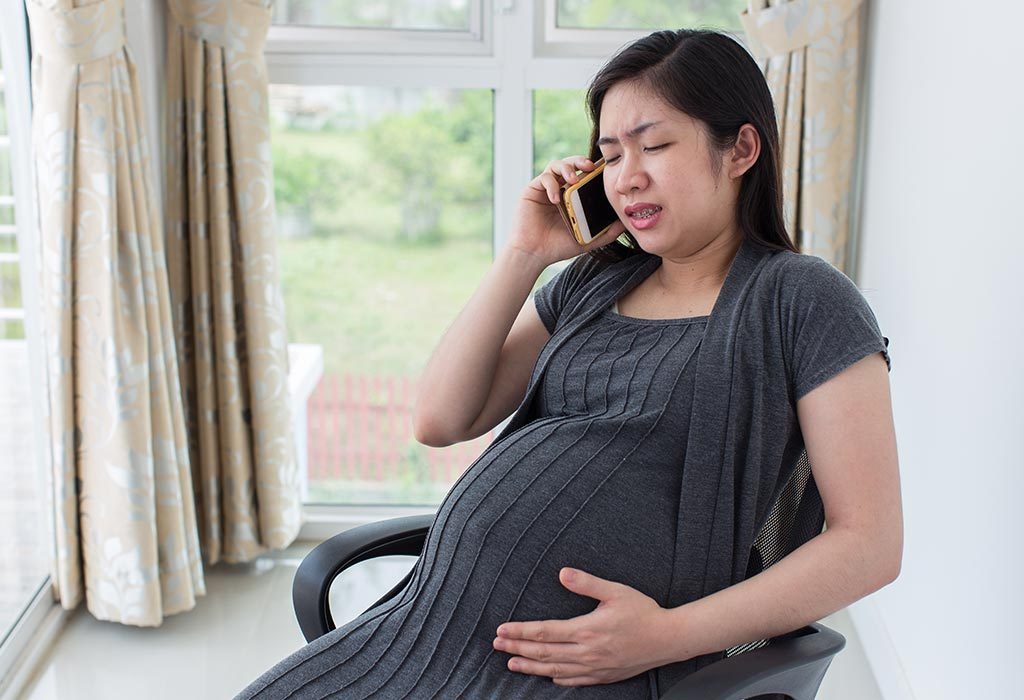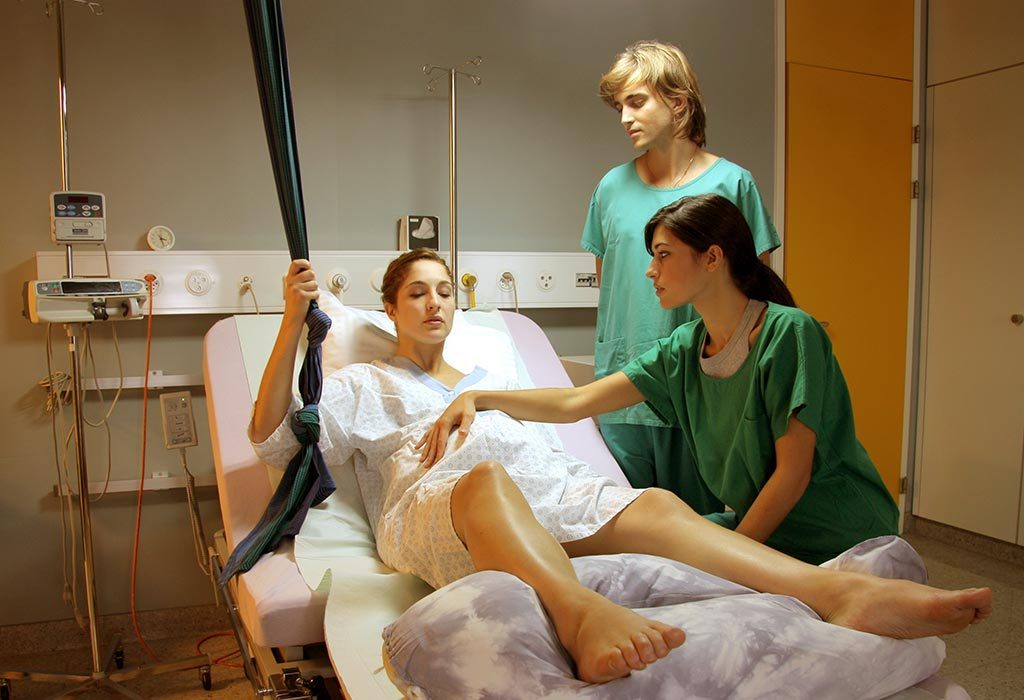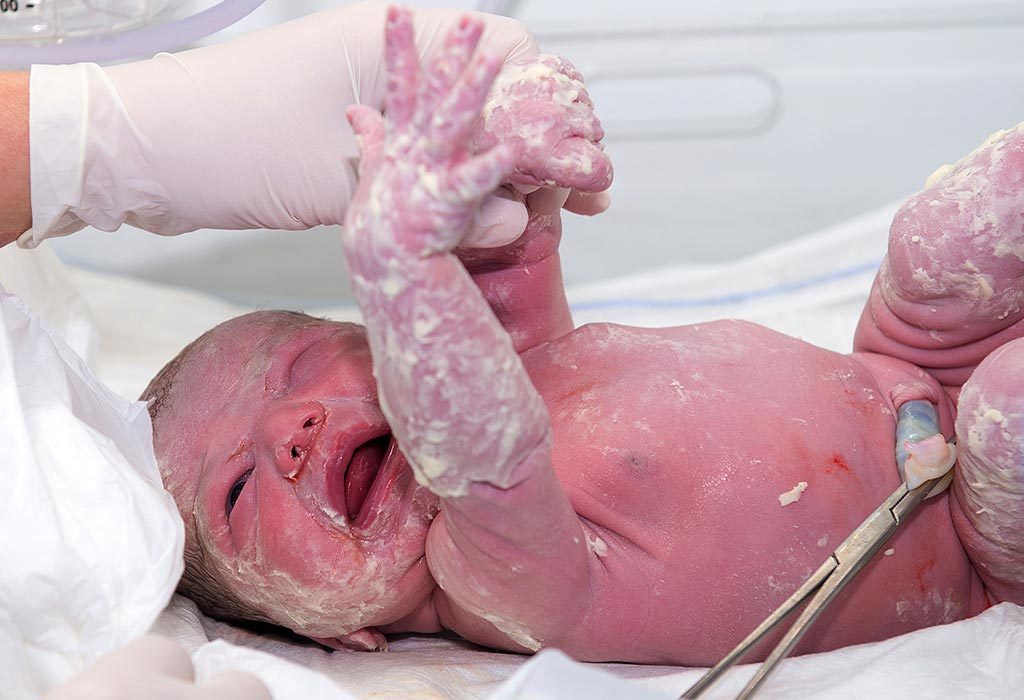Pregnancy is a wonderful experience. It is the time when you are happy, nervous, and excited – all at the same time. The nine months of pregnancy will without a doubt make you stronger and you will be all set to embrace motherhood. But there is also a not-so-glamorous side to it. As your delivery date approaches, you will just want the baby to come out soon. However, it doesn’t work that way, you have to go into labour and there are many things that happen during labour.
If you’re getting apprehensive about going into labour, thinking what will happen, then worry not. Read this information and be prepared for the labour.
What Happens during Labour – Things That No One Will Tell You
Pregnancy will bring a lot of changes to your body. While morning sickness and constant pain and fatigue will trouble you, the pregnancy glow you will have will make you happy. Giving birth to a child is a wonderful experience, but it also comes with a gross experience too. Whether you poop, pee, or vomit out of the blue, don’t feel embarrassed. It’s your body’s natural way of telling that things are going in the right direction.
Here are 10 things nobody will tell you about what happens to you and your cervix during labour.
1. Water Breaking
Imagine cruising through the grocery aisle or going to a fine restaurant with your friends for a short while and your water breaks. A puddle takes shape on the floor and your face goes red with embarrassment. Yes, that happens! The good news is you can leave immediately and excuse yourself. This is the time for going into labour. You may be given antibiotics or undergo induced labour if your baby doesn’t appear within 24 hours of your water breaking episode.

2. Vomiting
It is perfectly normal to be nauseated during labour and delivery. You may also vomit without warning when you bite into on your favourite steak or after eating goodies received from loved ones. Make peace with ice chips until your baby comes out and greets you because that’s what your midwife will suggest.
3. Pooping and Peeing
When in labour, you’ll use the same muscles for pushing out your baby that you use for pooping. There will be a lot of pressure on the birth canal when you try to push your baby and the hormones involved in bowel movements will be in full swing. You can’t prevent pooping or bouts of diarrhoea during or before labour since everything has to be flushed out from your system to make way for your baby. You will also pee uncontrollably during labour contractions since your baby will be pushing against your bladder. Your pelvic floor muscles will stretch out and tighten with time, making you lose bladder control during the process. So, don’t worry too much about it since pooping and peeing are expected things.
4. Farting
Pooping and farting go along, and you’ll find yourself having a lot of gas in your tummy close to delivery. When you push your baby to make way for his exit, you might fart without warning or unexpectedly, but there is no need to be embarrassed about it.
5. You’ll Be Exposed
Your cervix dilates by 10 cm to make room for your baby’s head and shrinks between 4 cm to 6 cm after early labour. Things speed up and your baby’s exit passage will be routinely checked to make sure things are on track. Your midwife and doctor will check you every few hours during the 20-hour period when labour approaches. Initially, you might be a bit hesitant but put that hesitance aside. Don’t be embarrassed, as this is normal. Your doctor is only doing his job and you can’t really do much about it.

6. Mucus Plug Comes Off
What nobody tells you during labour or what you can expect is your mucus plug coming off. Mucus is secreted by the uterus during ovulation to prepare you for pregnancy. It thickens and seals up your cervix, thus adding a protective layer for your baby. When you start preparing for labour and your cervix dilates, mucus plug comes off. In short, you’re going to be witnessing a lot of gooey, bloody mucus coming out during labour.
7. Post-Birth Bleeding
Post-delivery you may bleed a lot and it may last up to six weeks after childbirth. When the placenta detaches from the wall of the uterus, you might bleed. It is recommended that you avoid using tampons since they can cause infections. You can opt for thick absorbent pads.
8. Gooey Baby
As your baby comes out, you may not feel – love at first sight. As your little one will be covered in gloop, mucus, and other bodily fluids once he’s out of your uterus. However, after a few moments when your baby is wiped, you can take him in your arms and enjoy those first precious moments with him.

9. Post-birth Massage
Your uterus will need to be expelled along with any blood clots which persist post-labour. Your doctor or midwife will massage your belly and press down with a firm touch to help expel the placenta.
10. Episiotomy
Tearing of the vaginal tissues occurs during labour and you will need to be courageous to undergo an episiotomy. Embrace your fears and let your doctor run down his scalpel to the rectum right before your baby’s head pops out. Vaginal tears heal within a month to six weeks, so get your ice packs ready and be prepared for uncomfortable episodes of swelling down on your vagina. Nobody will tell you that you’ll be moving to and fro from the bathroom multiple times during the day before and after labour. You’ll have to wipe yourself clean using lukewarm water from a peri bottle since your nether area will become sensitive and may hurt with the use of toilet paper post-pregnancy. Your placenta will have to be expelled after your baby comes out and if massages don’t work, you’ll have to brace yourself to let a hand enter through your cervix and yank it out manually.
All of these experiences will be painful, but once you lay your eyes on your baby, all this will be worth it. Motherhood is a wonderful experience; though the nine months of pregnancy and unexpected things that happen during labour can scare you, you will forget all this pain once you see your baby.








